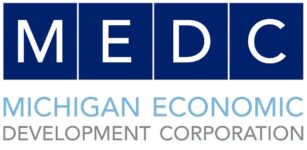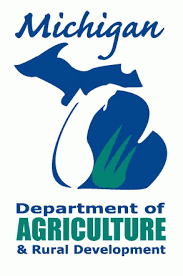
Community Revitalization Efforts Approved by Michigan Strategic Fund
Critical Support for Small Businesses, Community Revitalization Efforts Approved by Michigan Strategic Fund
The Michigan Strategic Fund today approved new economic assistance for small businesses, community revitalization projects and a business expansion that signals a strong beginning for economic recovery in Michigan, the Michigan Economic Development Corporation announced today.
“Today’s actions by the MSF Board send a strong signal he projects approved today are putting our state in a position to not only recover economically from the impact of COVID-19, but to thrive.”
With today’s announcement, the MEDC has deployed 15 response programs in the past three months to support small businesses, communities, entrepreneurs and workers in all corners of Michigan in combatting the economic impacts of COVID-19, providing support for more than 3,100 companies and helping retain more than 12,400 jobs for Michigan workers. These programs have reached all 83 counties in the state, assisting businesses across a range of industries, including food service, retail, healthcare, construction and professional services, among others.
New Financial Support Available for Small Businesses Impacted by COVID-19
Detroit Development Fund, a Community Development Finance Institution based in Detroit, received approval of a $1 million loan from the Michigan Strategic Fund to make micro and small business loans ranging from $5,000 to $250,000 to Michigan’s small businesses in Detroit, Highland Park, and Hamtramck, with an emphasis on businesses located in economically disadvantaged areas. The program is aimed at assisting those local businesses that have been most impacted by the COVID-19 virus, such as restaurants, coffee houses, retail stores, and service providers. Businesses can use these loans primarily for working capital, acquiring machinery and equipment, and inventory.
DDF anticipates it will provide a total of 30 to 40 loans to businesses that require patient, flexible working capital to re-open or re-establish operations following the relaxation of the stay-at-home orders, mandated closures, and other public health restrictions. DDF will begin accepting loan applications on July 6. Businesses interested in applying for a loan should visit https://www.detroitdevelopmentfund.com/ for more information.
In May, MSF approved a $2 million loan for Metro Community Development, Inc., a Community Development Finance Institution based in Flint, to provide business relief in counties in the 13 counties it serves, with an emphasis on businesses located in economically disadvantaged areas. These include areas not covered by Northern Initiatives, which received approval of a $2 million loan in April to assist small businesses in the 77-county region it serves. Between those loans and today’s approval for Detroit Development Fund, businesses in all counties in Michigan have been provided access to a total of $5 million in micro loan funds.
“Working with local partners like the Detroit Development Fund, we continue to focus on ways to expand existing programs and develop specific relief efforts as businesses work on their recovery efforts, while also working to fuel the future economic prosperity of the state,” Burton said.
Community Revitalization Projects Create Vibrant Communities, Attract Talent
The Michigan Strategic Fund also approved four community revitalization projects in Lansing, Bay City and Sault Ste. Marie that are helping to create the vibrant communities that attract talent through innovative placemaking. By contributing to traditional downtown districts and revitalizing public space in geographically disadvantaged areas these projects are helping to establish attractive places to live, work and play. The projects are also leveraging critical federal dollars to support economic development activities here in Michigan.
ANC Holdings, LLC plans to rehabilitate an existing two-story building that currently houses the Allen Neighborhood Center into a three-story mixed-use development in the city of Lansing. When completed, the Allen Place Project will include affordable rental housing units, community-based health care services, a culinary training school, an accelerator kitchen for food-based entrepreneurs, and increased access to healthy food options for area residents. Allen Neighborhood Center will continue to operate in the building, where it offers an incubator kitchen, community outreach, a farmer’s market, community events and fresh food delivery options. The project is expected to generate a total capital investment of $11 million and create 14 full-time equivalent jobs, resulting in a $1.5 million Michigan Community Revitalization Program performance-based grant.
The project is adding density to an underserved urban neighborhood, bringing new taxable value to the area. The project is also consistent with the MEDC Strategic Plan by transforming an underutilized property into a multi-use facility with placemaking and sustainable green features. The Allen Place Project will increase community services, providing much-needed rental housing, and supporting agribusiness, with more than 75 farmers and food producers within 50 miles of Lansing that use the space. The accelerator kitchen will also catalyze entrepreneurship opportunities and provide for equitable high-wage growth by supporting economically disadvantaged individuals.
The city of Lansing approved a 12-year Obsolete Property Rehabilitation Exemption Certification valued at approximately $900,000. The Lansing Economic Development Corporation also receive approval of an $850,000 brownfield grant from the Department of the Environment, Great Lakes, and Energy. The project is also using a $9.5 million allocation of federal New Market Tax Credits with a monetary value of $3.25 million for the project. The city of Lansing is certified with MEDC’s Redevelopment Ready Communities program and is also a Michigan Main Street community.
Also in Michigan’s capital, Lansing Acquisition 500, LLC, led by Michigan Community Capital, plans to redevelop the historic Temple building in the city of Lansing’s Old Town neighborhood. When completed, the Temple Redevelopment project will consist of a five-story mixed-use building with commercial/office space, mixed-income residential apartments and a parking structure. The project is expected to generate a total capital investment of $9.4 million and create 10 full-time equivalent jobs, resulting in a $4.8 million MSF activity performance-based equity award. The City of Lansing Brownfield Redevelopment Authority also received MSF approval of a brownfield work plan including state tax capture in the amount of $706,069 to be used for brownfield activities at the site.
The project aligns with the MEDC Strategic Plan by restoring a long-vacant and iconic building in an important commercial corridor and providing much-needed housing in the Old Town neighborhood. The city of Lansing is supporting the project by approval of the brownfield work plan including local capture valued at $1,412,349 and approval of an accelerated brownfield reimbursement loan of $250,000. Michigan Community Capital is a supporting entity of the Michigan Strategic Fund that facilitates investment in attainable housing projects. Old Town Lansing is a Michigan Main Street community.
BRD Opportunity Zone Developer LLC plans to construct a new five-story building on the waterfront in Uptown Bay City. When completed, the Uptown/River’s Edge Redevelopment project will include 60 market-rate, riverfront residential units and a two-level parking structure. The 60 unit residential project is expected to generate a total private investment of $14.3 million and will contribute to a strong sense of place and a pedestrian-friendly environment by creating market-rate rental housing directly on the riverfront in downtown Bay City, contributing to a more vibrant and energetic area that will attract additional residents and businesses.
The Michigan Strategic Fund today approved a Michigan Community Revitalization Program performance-based loan of $1.9 million in support of the construction of the 60-unit residential project. The City of Bay City Brownfield Redevelopment Authority also received MSF approval of an amendment to the existing brownfield work plan, including state tax capture of $11,078,220, to incorporate additional development and to improve the public infrastructure within and surrounding the Uptown Bay City property parcels. Local support includes approval of the local portion of the brownfield Tax Increment Financing valued at $16,268,658 for the first phase of the project as well as $6 million in local municipal bonds to support the creation of vital infrastructure needed for the second phase.
The city of Bay City, in partnership with Shaheen Development, will be undertaking brownfield eligible activities including reconstructing a bridge off-ramp and building or restoring city-owned streets creating a more cohesive and walkable downtown environment. The project aligns with the MEDC Strategic Plan by being located in a geographically disadvantaged area and utilizing a federal Neighborhood Opportunity Zone to spur economic development, as well as supporting the creation of place-based development projects that directly result in dense, vibrant, and walkable communities.
The city of Sault Ste. Marie has been awarded $4,378,500 in federal Community Development Block Grant (CDBG) funds for streetscape and placemaking improvements for the Downtown Access and Placemaking project. The project will transform four public spaces, providing curb-less and multi-modal sidewalks, an interpretive pathway, streetscape improvements and way-finding signage allowing for residents to safely walk, bike, and access public transportation in downtown Sault Ste. Marie. Redevelopment of the four sites will create green areas, dedication of space to enjoy outdoor recreation and placemaking elements. The city anticipates that this project will result in increased private investment in the downtown due to the improved access and connectivity to the downtown district.
The city of Sault Ste. Marie will make an anticipated contribution of $1,878,500, which is 30 percent of the total public infrastructure costs. The city is certified with MEDC’s Redevelopment Ready Communities program.
Business Growth Brings News Jobs to Highland Park
In addition to these projects supporting small business and community vitality, the Michigan Strategic Fund also approved support for Magna Seating of America, resulting in 480 new jobs and an investment of $35.4 million in the company’s Highland Park facility. The creation of 480 jobs – which will include management, IT, and manufacturing positions – resulted in a $2.1 million Michigan Business Development Program performance-based grant and MSF approval of a five-year, 100-percent State Essential Services Assessment exemption valued at $326,678.
The project builds on economic prosperity efforts led by the Michigan Economic Development Corporation by supporting growth in the target industry of mobility and auto manufacturing, and adding jobs in a geographically disadvantaged area. Nearly 300 of the new jobs will be entry level positions, bringing new opportunities to area residents and offering a path to higher-wage jobs. Read the full project announcement here.
To learn more about MEDC’s COVID-19 response programs and the impact they are having on economic recovery efforts, visit michiganbusiness.org/covid19response. Other resources for businesses across Michigan struggling with economic losses as a result of the COVID-19 virus can be found online at michiganbusiness.org/covid19. The MEDC has also developed a FAQ for Michigan businesses and communities at michiganbusiness.org/covid19-faq.
Information around this outbreak is changing rapidly. The latest information is available at Michigan.gov/Coronavirus and CDC.gov/Coronavirus.






